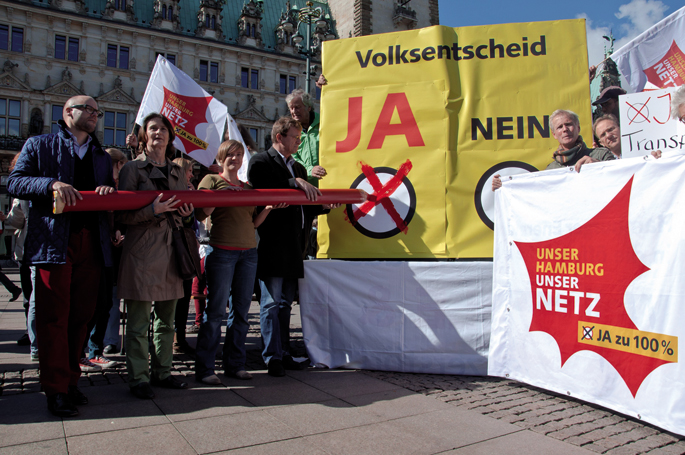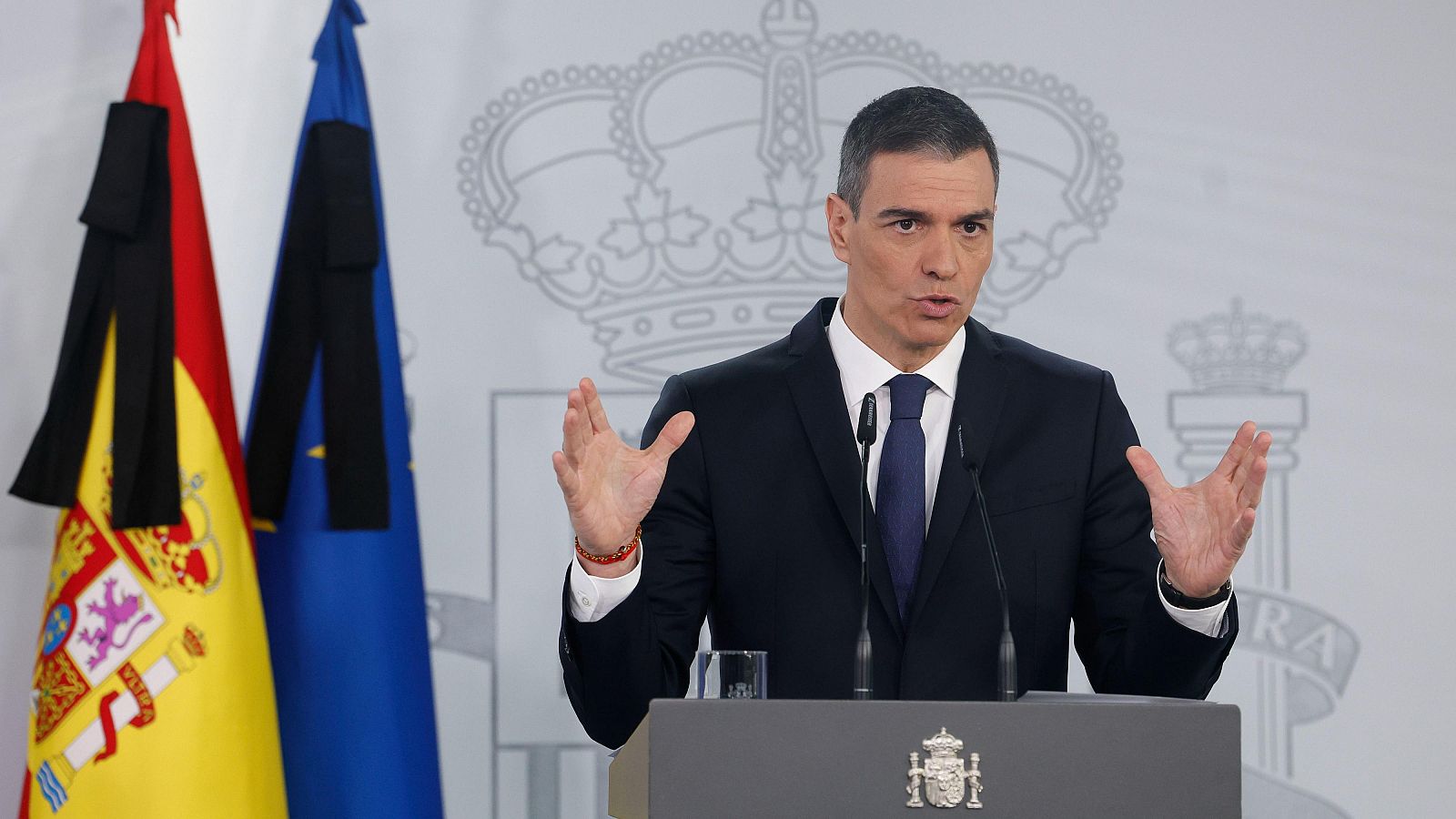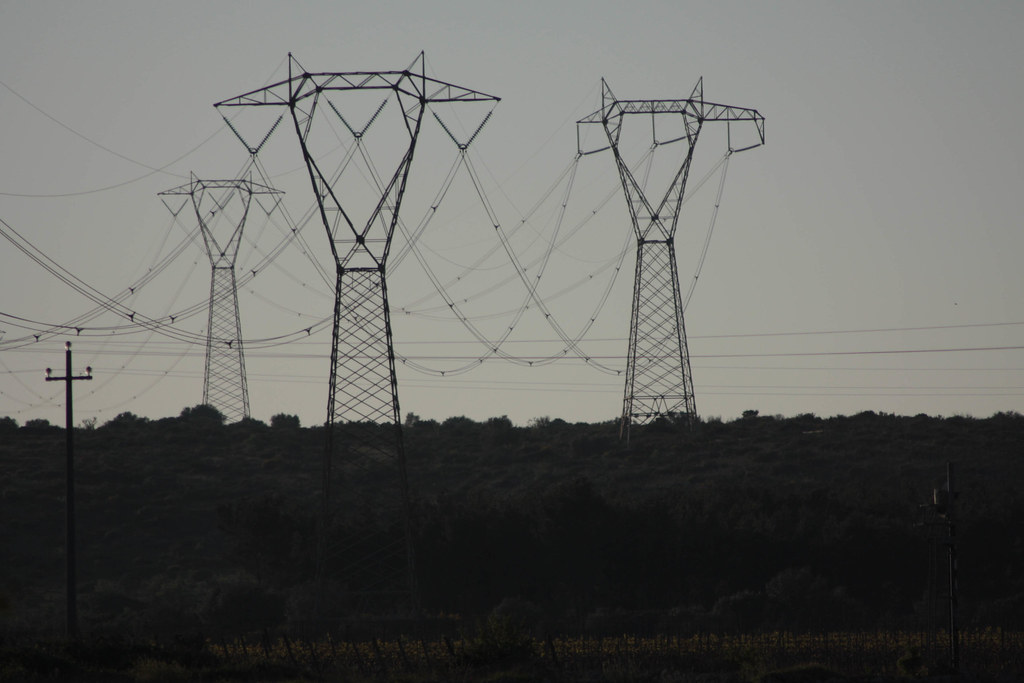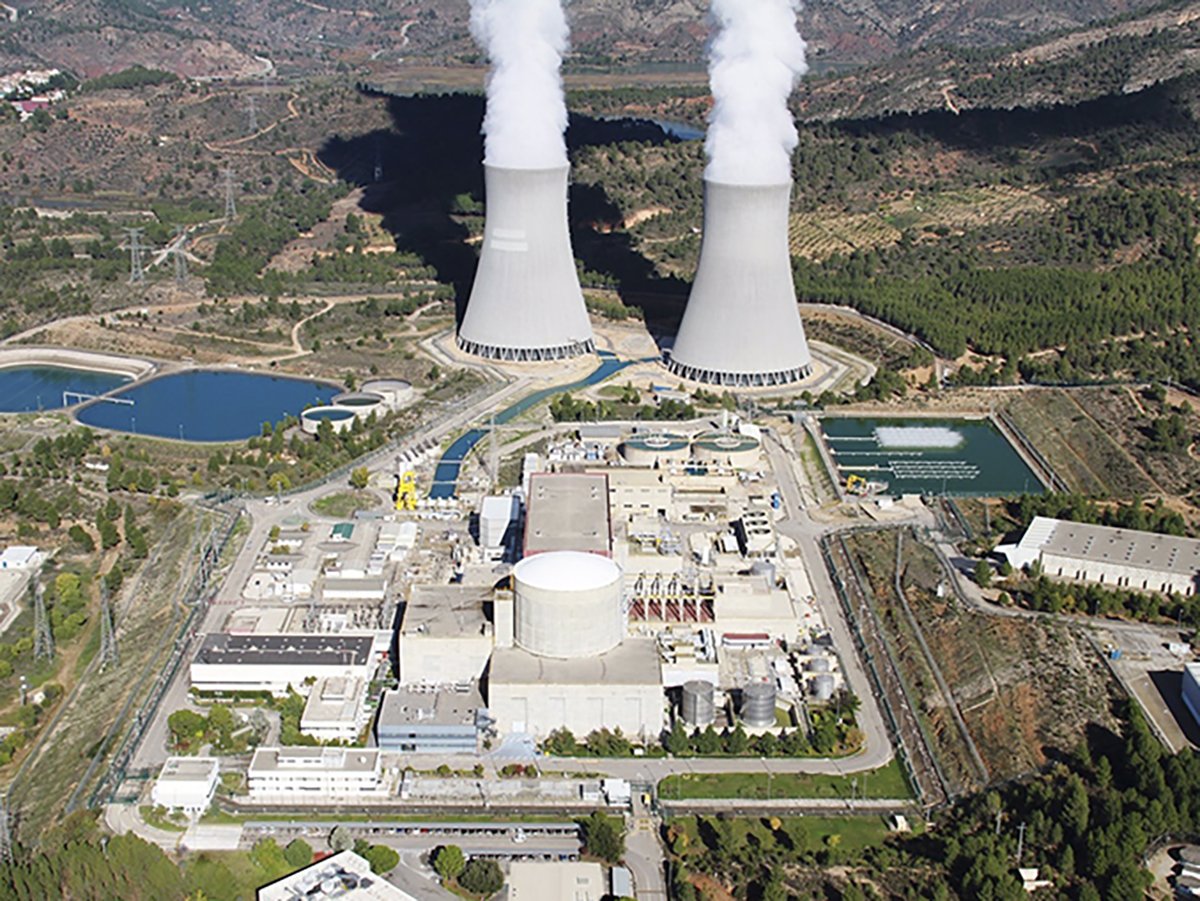Privatized dump: Hamburg makes the electricity grid public
- While the Basques continue to leave the savings banks and other public goods in the hands of the great gentlemen, elsewhere they have managed to do the opposite. In Hamburg, Germany, citizens decided in a referendum that the city’s electricity grid would become public in two years’ time.

This action to defend the trees of Moorburgtrasse, organised in 2009, has been a longer rope than expected in Hamburg. In that month of December, a dozen people went up to the trees starting the campaign “Moorburgtrasse Stoppen!”. The authorities were prepared to allow three parks to pass through hundreds of cut trees.
"The park is ours!" and "Let's defend the trees!" they screamed from huts and rammed platforms for three months. They had to deal with snow, rains, winds and winter storms, until in March 2010 the courts assured them that the pipeline project was suspended.
In Hamburg, one of the greenest cities in Germany, the Swedish Vattenfall Corporation was building a new coal-fired power station and the activists advocated the passage of the pipelines between the new Elba shore power plant and the city. The Moorburgtrass fighters managed to put a fatter issue on the political agenda in Hamburg: climate change and renewable energies, pulling the strings, questioned the ownership of energy.
Three years later, in September 2013, the ownership of Hamburg’s electricity and gas suppliers was voted on in a referendum. That is, whether citizens want them to remain in the hands of private companies or to be re-owned by public companies as they have been for years. Environmental, consumer and religious groups have campaigned for the advertising of energy sources, although they have barely won the survey.
As a result, Hamburg, the second largest city in Germany, will take over electricity, gas and district heating, which is community heating in many parts of Northern Europe, and will recover the services that the authorities sold to Vattenfall and E.On.
The reports Claire Provost and Matt Kennard gave details of the news in the chronicle “Hamburg at forefront of global drive to reverse privatisation of city services” (the privatization of services in the pioneering cities of Hamburg has spread all over the world).
“Along the way – as Provost and Kennard have written – Hamburg joins the growing number of cities that have decided to end privatisation experiments around the world. Since 2007, more than 170 municipalities in Germany have once again put energy services in public hands. Over 100 major cities worldwide have done the same with the water service over the past 15 years, including dozens of French cities, in France itself which has pioneered the privatization of the first water”
Utikan, Vattenfall and E.On
No referendum such as that in Hamburg has borne the same fruit. In Berlin, in 2011, citizens did not support the referendum proposing the abolition of the water service to the private company. However, more and more movements have been taking place in cities over the past 30 years with the aim of reversing the privatization of public services, including water and energy.
The republication of energy in Hamburg demonstrates how strong the new movement is. It owns one of the largest ports in the world, it is at the heart of globalisation, many of Europe’s businesses pass through this modern city. And he decided to say goodbye to the era that private energy companies were controlling.
In 2010, the militants launched the “Unser Hamburg, Unser Netz” campaign, about to conclude their contracts with the multinationals Vattenfall and E.On. Within the movement, ecologists believed that the recovery of networks would bring the city better control of energy sources, contributing to the transition from nuclear and coal to renewables.
Consumer associations argued that Vattenfall and E.On were both the creators and purchasers of energy, and that this was bad for consumers who had to buy it. Religious groups and anti-poverty groups added that energy networks should not be in private hands, but should be managed by the public administration. In the end, people with disabilities, students and street bohemian musicians agreed on the movement.
In Germany, more and more cities are starting from the same path. Christian Maas, Hamburg’s Environmental and Urban Planning Officer, told reporters that “people are interested in nearby energy suppliers, and this cannot be married to centralized, profit-oriented companies.” This phenomenon is being seen in many cities in America and Asia.
Re-publication, in any case, results in a lack of information. It's not easy to get. The Public Services International Research Unit (PSIRU) and the Transnational Institute are working very courageously in this area. We know from them, for example, that as far as water services are concerned, there are more than 180 cities that have once again passed on to public control services that have been privatised in the past. There are cases in France (such as Bordeaux itself), Germany, Hungary (Budapest), Argentina (Buenos Aires), Indonesia, Mozambique (Maputo)...
It is not always those on the left who have taken the step. In the United States, conservative authorities have done so, because that's how the community saves money. On other occasions, the companies themselves have escaped because they saw no benefit. In most cases, however, it is the social movements that have forced public services to return to public service.
In the case of Hanburg, the need for an energy transition has gained strength among the citizens. In the referendum question, in addition to recovering the energy network, it was proposed to set as an objective “a socially just, democratically controlled and sustainable supply of energy to the climate, generated by sustainable sources”.
Large corporations have no interest in small, non-centralized projects. On the contrary, the municipal assumption can mean a change in the energy system, stable prices for people, and a lower dependence of the city on fossil fuels that must be brought from afar. Will the municipal elections in Hego Euskal Herria be debated this winter?
Antonio Turiel fisikari eta CSICeko ikerlariak aspaldiko urteetan ez bezala bete zuen Hernaniko Florida auzoko San Jose Langilearen eliza asteazkenean. Zientoka lagun elkartu ziren Urumeako Mendiak Bizirik taldeak antolatuta Trantsizio energetikoaren mugak izeneko bere hitzaldia... [+]
Energiaren Nazioarteko Agentziak (IEA) astelehenean argitaratutako txostenaren arabera, %2,2 igo da energia eskaria 2024an aurreko urtearekin alderatuta, besteak beste, egiturazko arrazoi hauengatik: beroari aurre egiteko argindar gehiago erabili beharra, industriaren kontsumoa... [+]
Eusko Jaurlaritzak eta Arabako Foru Aldundiak Datu Zentroen instalazioei ateak irekitzen dizkiete horiek arautzeko legedia sortu aurretik. Bilbao-Arasur Dantu Zentroarekin, bere lehen fasea gauzatuta, eta instalatzea amesten duen Solariaren Datu Zentroarekin, 110.000 m2... [+]
Espainiako Estatuko zentral nuklearrak itxi ez daitezen aktoreen presioak gora jarraitzen du. Otsailaren 12an Espainiako Kongresuak itxi beharreko zentral nuklearrak ez ixteko eskatu zion Espainiako Gobernuari, eta orain berdin egin dute Endesak eta Iberdrolak.






















